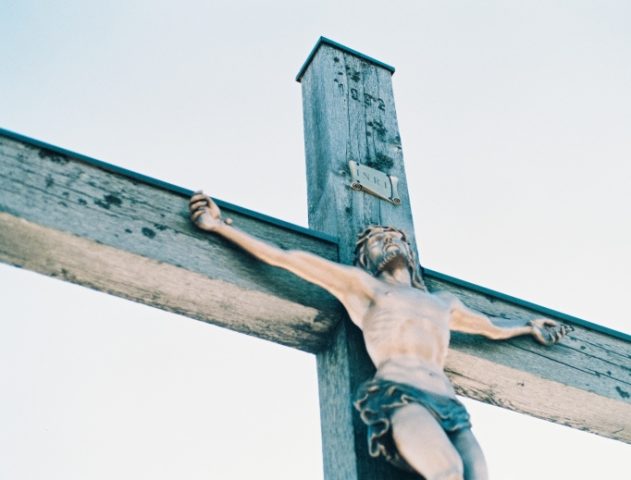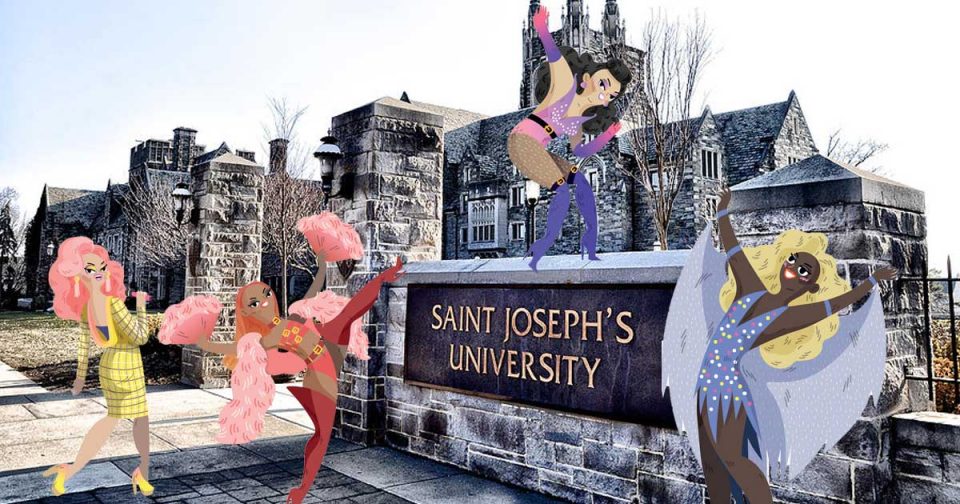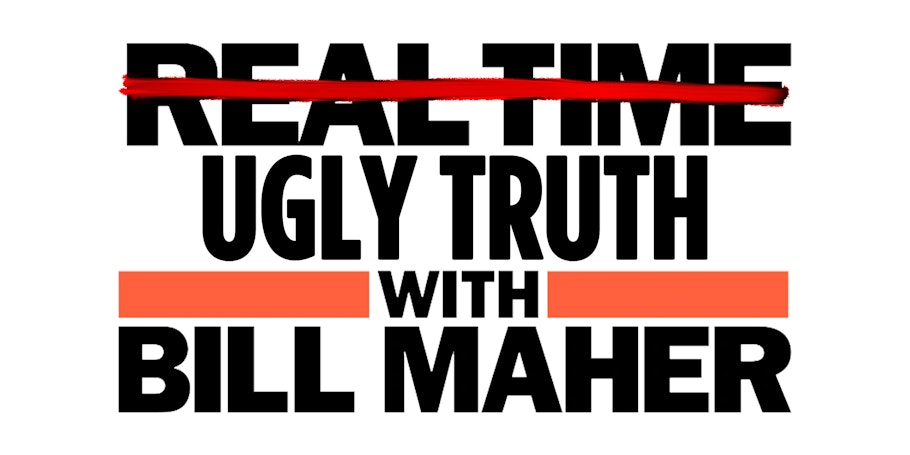We Were Told the New Sexual Orthodoxy Wouldn’t Impact Dissenters – That Was False
September 2, 2017In Rare WSJ Op-Ed, Cardinal Sarah Says Fr. Martin’s LGBT Outreach Falls Short
September 2, 2017
COMMENTARY: We must ‘stand on our own feet, look the world square in the face,’ and recognize that Jesus Christ is our Lord and Savior, without whom our lives our meaningless and our hopes vain.
By Rachel Lu, National Catholic Register, Aug 31st, 2017
Bertrand Russell, the 20th-century British philosopher, was not a Christian. He explained this clearly in his descriptively titled essay, “Why I Am Not a Christian.” I cannot especially recommend this work, though curious Christian readers should not in the least be afraid of it. Like many other highly intelligent men, Russell was at his stupidest when he got on the subject of religious faith.
Originally delivered as a lecture in March 1927, “Why I Am Not a Christian” is a veritable cornucopia of half-baked arguments and stream-of-consciousness rants.
In the early part of the essay, this giant of analytic philosophy nitpicks several of the classical proofs of God’s existence. He praises Darwinism, gripes that traditional morality “inflicts upon all sorts of people undeserved and unnecessary suffering” (how wonderful that enlightenment secularists came to liberate us from undeserved suffering!), and tosses off his personal theory that fear is at the heart of religious faith. He is offended because Jesus believed in hell, which no humane person should do. Nevertheless, he closes his anti-apologia by urging his readers or listeners to “stand upon our own feet and look fair and square at the world — its good facts, its bad facts, its beauties and its ugliness.”
Curiously, Russell sees a tension between “looking square at the world” and declaring ourselves to be sinners. He must have lived his life among extremely nice people.
In his scholarly work, Russell was a formidable thinker, both systematic and thorough. In the theological realm, he was a scattershot, ignorant babbler, whose discourse shows virtually no understanding either of the internal logic of faith, or of the external structure of Christian theology, or of the psychological reasons why so many have chosen to reorder their entire lives around a man who lived and died in Palestine two millennia ago. Russell’s arguments are sophomoric, and even childish.
Today’s New Atheists (men like Richard Dawkins or Daniel Dennett) are not of Russell’s caliber intellectually, but they have picked up this tradition, in some cases making whole careers out of contemptuous, ignorant invective against the followers of Christ.
Shouldn’t it be obvious that a faith with the breadth, depth and geographical reach of Christianity can’t be eviscerated just over the course of an evening lecture? If a university professor used a public lecture to give a slapdash dismissal of, say, another university discipline (“Why Psychology Is Total Hogwash”), he would discredit himself, incur the wrath of his colleagues, and likely provoke a firestorm in the broader community and perhaps media. But even a nonbeliever should easily see that Christianity’s influence on the course of human civilization has been massive; the (relatively new) science of psychology can hardly begin to compare. Why is it uniquely respectable to give Christianity this kind of hatchet job?
Here we come to one of the great ironies of modern life. It is, in a sense, harder to believe in God today. To many it simply seems obvious that religious faith is foolish, self-indulgent and anachronistic. At the same time, modern life supplies us with abundant justification for religious belief. On so many levels, the world today confirms the truth of the hard words that Jesus Christ spoke, in a foreign land and a foreign tongue, 2,000 years ago.
Why is it harder to believe? It isn’t just because the social costs are high, though for some they undoubtedly are. Christians, we should recall, have endured rejection and persecution for their faith from the time of Christ onwards.
At present, Western Christians mostly don’t live in daily fear simply because they are continuing to practice the faith. Many Christians outside the West do know that kind of fear, and the past half-century has seen vicious outbreaks of anti-clericalism in both Europe and Latin America. In the United States, Catholics have never had to pay such a heavy price for practicing our faith. Even in an era when persecution is on the rise, we cannot reasonably claim that political persecution or social censure have made our faith uniquely burdensome.
Western Christians fight another kind of battle. We must hang onto our faith in a world where material and social circumstances can make it seem at once burdensome and superfluous. Things were rather different for many or most Catholics historically, since life options (concerning profession, places of residence, etc.) were for most people fairly circumscribed. Retaining good standing in the community of one’s birth was (in most periods) pretty obviously necessary; hardly anyone could hope to survive and thrive without a supportive network of people. Even the slothful and rapacious had good reason to make at least a nominal show of piety, and for those who actually sought greater understanding or spiritual nourishment, the Church was the obvious resource.
Things are very different today. Opportunities abound. Entertainments abound. Self-help books and therapists and yoga groups abound. Communities of people form and dissolve again in an endless churn of frenzied activity. Sex is increasingly divorced from love and commitment; thanks to the internet, human interaction is increasingly divorced from the body itself. Our friendships and soul-searching conversations take place in a bloodless netherworld where no one can ever break bread.
In this world, it’s easy to walk away from the faith of one’s fathers. For many, to all appearances, there are plenty of places to go, communities to join, and more interesting things to do on a Sunday morning. “Who needs faith? Who wants it?” many ask. Looking over all the messy history and extensive rules and complicated theological details of Catholicism, it’s tempting just to join Russell and other atheist apologists in declaring that we can do without all that: “Modern society ticks along just fine on its secular axis. We have no need of the ‘God hypothesis,’” this thinking says.
Here, though, we notice a strange thing. As the buffet of life grows ever larger, and ever-more-laden with colorful offerings, the nutritional value of those offerings keeps dropping. Adult life today is replete with customizable options, but something always seems to be missing. We keep going back to the table for extra helpings, but somehow we never feel full.
On a level of society, that emptiness manifests itself in rampant addiction, empty sex, pathologies of every variety, and large and growing numbers of single-parent households. Modernity made it easy for people to walk away from God. The further that experiment goes, the more plausible the “God hypothesis” starts to look.
The material world does not explain itself. Human beings, endowed with reason, have the capacity to recognize this fact and to see that nature herself points beyond herself, toward something (or Someone) much greater. This realization may be comforting, but then again it may not. There can be a certain comfort in believing that everything that exists is knowable and to some extent predictable. Once we make room for God in that picture, who can say what might happen, or where we might end up? Religious faith involves a kind of relinquishment of rational control, along with an acknowledgement of our deficiencies and weaknesses. We are not fully in charge of our own destiny, as much as we often would like to be.
As a highly intelligent man once said, however, it would be ignoble to let fear dominate our commitments and determine our beliefs. We must stand on our own feet, look fair and square at the world, and recognize that Jesus Christ is Our Lord and Savior, without whom our lives our meaningless and our hopes vain. Even as the path away from God becomes smoother and more downward-sloping, the world yearns for the meaning and fulfillment that only God can truly supply.
Rachel Lu, Ph.D., teaches philosophy at the University of St. Thomas in St. Paul, Minnesota.







